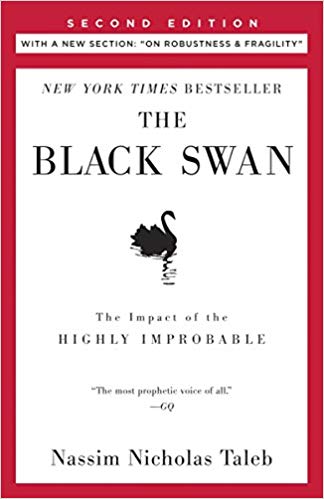

This article is an excerpt from the Shortform summary of "The Black Swan" by Nassim Taleb. Shortform has the world's best summaries of books you should be reading.
Like this article? Sign up for a free trial here .
What are “unknown unknowns.” Why do we have the tendency to avoid them?
We’ll cover why unknown unknowns are so hard to see (we don’t know that we do don’t know them!) and how our tendency to “tunnel” gives us an inaccurate picture of the world.
Our Tendency to Tunnel and Avoid “Unknown Unknowns”
A repercussion of the Distortion of Silent Evidence, “tunneling” describes the natural human tendency to favor knowns and known unknowns rather than unknown unknowns. In other words, our understanding of uncertainty is based almost exclusively on what has happened in the past rather than what could have happened.
The primary practitioners of tunneling are those Taleb calls “nerds”—academics, mathematicians, engineers, statisticians, and the like. Nerds are those who think entirely “inside the box”; they Platonify the world and can’t perceive possibilities that lie outside their scientific models and academic training. They’re especially vulnerable to missing the unknown unknowns.
Nerds suffer from the “ludic fallacy.” (“Ludic” comes from the Latin word ludus, which means “game.”) That is, they treat uncertainty in real life like uncertainty in games of chance, for example roulette or blackjack. The problem with this approach is that, unlike games of chance, real life has no rules. Real life has far more unknown unknowns.
Nerds aren’t the only ones guilty of the ludic fallacy, however; average people indulge it as well. For example, most people think casino games represent the height of risk and uncertainty. In truth, casino games hail from Mediocristan—there are clear and definite rules that govern play, and the odds of winning or losing are calculable. Unlike real life, the amount of uncertainty in a casino game is highly constrained.
The incredible unpredictability of real life and the prevalence of unknown unknowns can be illustrated by a look at casinos themselves, rather than their games. Casinos spend huge sums of money on sophisticated security systems—cameras, dealer training, alarms—in an effort to prevent cheating. These systems are designed to foil cheats who use methods that are either known or expected. But the casino Taleb studied suffered its worst losses not from cheating but from completely unexpected real-life events:
- an entertainer was attacked by the tiger with which he performed, resulting in a $100 million loss due to cancelled shows;
- an employee, for years and for no good reason, neglected to file an essential tax form with the IRS, resulting in a huge fine; and
- The casino owner’s daughter was kidnapped, and to pay the ransom, the casino owner withdrew cash from the casino’s fund.
Taleb’s study of this particular casino yielded the insight that unexpected, real-life events caused greater losses to the casino than cheating by a factor of almost 1,000 to 1. Suffice it to say, to prepare ourselves for Black Swans, unknown unknowns, we must resist the ludic fallacy and think outside the rules of the games to which we’re accustomed.
———End of Preview———

Like what you just read? Read the rest of the world's best summary of "Black Swan" at Shortform . Learn the book's critical concepts in 20 minutes or less .
Here's what you'll find in our full Black Swan summary :
- Why world-changing events are unpredictable, and how to deal with them
- Why you can't trust experts, especially the confident ones
- The best investment strategy to take advantage of black swants






